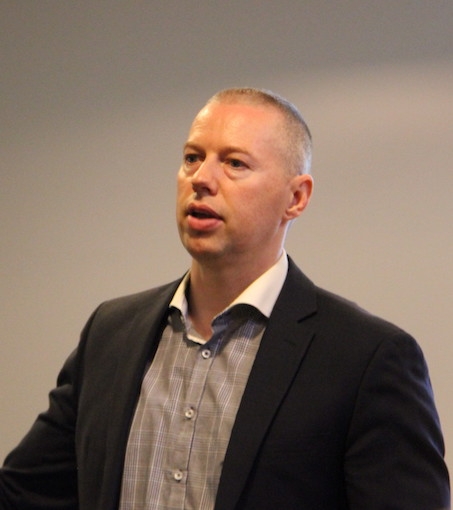
Q&A: Kevin Kempcke, director of security, MLSE
By Canadian Security
News Industry NewsCanadian Security recently sat down with Kevin Kempcke, director of security for Maple Leaf Sports and Entertainment, to discuss his thoughts about the evolution of security in sporting faciltiies, new challenges and threats, and the importance of training staff to keep fans safe.
 Kevin Kempcke
Kevin Kempcke Canadian Security: How has security at event/sporting facilities changed over the years?
Kevin Kempcke: If you look back 10-15 years ago, there wasn’t a direct threat to sporting events. I think what’s happened now is a lot of instances have been happening…all across the world unfortunately, and there’s been a little more targeting, if I can say, at sporting venues, more so just because of the national broadcast, the amount of people that attend — it’s a mass gathering. So we really have to take different measures than we did 10 years ago on how we mitigate and manage our people, not only outside the venue but also inside the venue.
CS: The Air Canada Centre implemented walk-throughs a few years ago — what has been the reaction to that from fans and how have they improved security?
KK: When we first introduced the walk-throughs, we thought here would be a lot of pushback. But most fans thanked us. They thanked us; they want security. The expectation when one comes to a venue like us is obviously the fun, the excitement, the whole environment, but they’re looking for security as well. They want the safety, knowing they’re in a secure building, knowing they can enjoy the event safely is also a high expectation. So when we implement them, they understand that they’re getting that safety.
The biggest secret to our success with the walkthroughs was the communication. Just communicating how they’re set up, when, what to bring in. We also use what we call ‘line busters,’ and they’re outside communicating with our fans prior to getting into the queuing system: what to remove, what they can bring in. And we really push forward in terms of how we manage the crowds outside our venue and how we can direct them to different lines. We try to make it a quick and seamless operation. The average queue time is very limited, and it’s been going very well.
CS: What is your approach to training staff and keeping them up to date on procedures and policies?
KK: So training is very important for our staff. The leagues understand it, they mandate training — each league mandates tabletop exercises, which we perform with our staff. It’s great because it’s live, in the moment. We throw audible plays, if you will, and they have to react to surprises and changes to the plans. We are a huge advocator of training our staff. We’ll call them in on non-event days, we’ll do pre-shift training, we’ll do post-event training and we coach in the moment, which is very important as well. We continue to raise the experience and not only the security but also the customer service of our staff is a huge priority for Maple Leaf Sports and Entertainment.
CS: How do you work with police and other first responders during events?
KK: We foster a close relationship with our first responders, more specifically Toronto Police, 52 division, and the emergency management team — they’ve been fantastic with us. We work with them on major events — the planning and execution — such as playoffs. We recently had the MLS Cup at BMO Field, the NBA All-Star was a massive event, and of course the Invictus Games over the summer time [was big too]. So we work on a close relationship with communication and we learn to really share our plans and our ideas, and we work through any kind of details that we would consider a roadblock or that we have to really massage to get an audible solution for our fans, and the safety of everyone around us.
CS: What would you say is the biggest challenge to security at events and games, and how will you be approaching that in the coming years?
KK: We feel like it’s a pretty safe environment in our venue. But because of our space, there’s a lot of public space, and I think the challenge is how do we manage and mitigate the traffic and the crowds outside the venue, prior to going through our screening? That’s the unique challenge that we have and we’ve instituted a number of things, along with Toronto Police, who we work closely with. They’ve instituted a number of measures that help manage and mitigate the crowds outside. We’ve also added some physical security hardening of our perimeter to, again, keep it a safe building.
Print this page
Advertisement
- YouTube shooter told family members she ‘hated’ the company
- Edmonton university recovers bulk of money lost in phishing attack
Leave a Reply